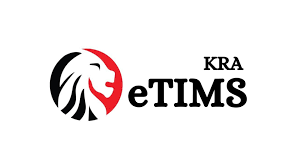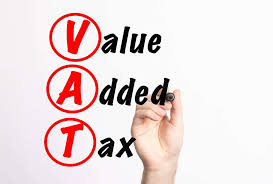Do you own a business? If so, it’s important to know what your business is worth. Whether you’re thinking of selling in the future or just want to have an accurate estimate for your own records, business valuation is a key step in understanding the health of your company. In this blog post, we’ll discuss what business valuation is and why you need it. We’ll also describe the five most common methods of valuation and eight benefits of getting a valuation done on your company.
What Is Business Valuation?
A business valuation is an assessment of the economic value of a business or company. It is a determination that attempts to specify the present worth of a property. The value may be ascertained for various reasons such as sale value, establishing partner ownership, taxation and so on. Business appraisers (valuators) determine the worth of a business. They typically specialize in categories such as intangible assets, solvency valuation or valuation for financial reporting purposes.
This estimate can be used for a variety of purposes, including assessing the worth of a company for sale, calculating taxes, and establishing how much money you might receive in an acquisition or merger. There are several methods of business valuation, but they all share a common objective: to define the present value of a firm’s future cash flows. These methods are discussed later in the article.
Why Do You Need Business Valuation?
There are many reasons why you might need to get a business valuation done on your company. The most common reasons include:
- Selling your business: Business valuation will help you avoid over-pricing your business and getting stuck with it for a long time by helping you set the right price for your business. It should also help you look at your business from the buyer’s perspective and anticipate how they would react to different offers.
- Determining your tax liability: Tax regulations can be confusing and penalties for non-compliance are significant. When considering a corporate sale, proactive tax planning is essential. To implement an optimal strategy and determine your tax liability, it’s necessary to perform a business valuation.
- Calculating compensation in an acquisition or merger: In mergers and acquisitions, business valuation is especially vital as it determines the amount of money to be compensated. The company being taken over or merged with has to be fairly valued before the closing stage. It should be noted here that business valuation is indispensable in any kind of sales or succession planning; a wise approach would be to get your company valued annually so that you may keep adjusting the compensation of your employees by keeping the value of your business in mind, rather than waiting and valuing it along with sales or succession planning.
- Securing financing: The reason why business valuation is important when securing financing, is to insure that your request will be taken seriously by getting the credible information/data that banks and other financial institutions need in order to make informed decisions. In other words a professional business valuation gives lenders and investors the confidence they need to fund your venture.
- Making informed decisions about strategic investments: Making informed decisions about strategic investments is key in today’s competitive marketplace. Setting a business value that accurately reflects the marketplace, and understanding how to capitalize on that value, are essential in distinguishing your company from the competition and delivering a return to investors.
Methods of Business Valuation
There are five primary methods of business valuation: the income approach, the market approach, the asset approach, the cost approach, and the economic value added (EVA) method.
The Income Approach
The income approach estimates the value of a company by projecting its future earnings and discounting them back to present value. The income approach breaks the subject interest down into their highest and best use, and then predicts future cash flows for the subject property using a number of appropriate valuation methods. The value is the present value of these future cash flows. The main inputs into this approach include capitalization rates, discount rates, and market projections. This method is most commonly used when valuing companies that generate a steady stream of profits. The formula for discounted cash flow valuation is:\n❙PV = Present Value\n❙FCF = Free Cash Flow\n❙k = Discount Rate (Cost of Capital).
The Market Approach
The market approach values a company based on how similar businesses have been priced in recent transactions. This approach is based on the principle of what the market offers an investor in the stock market. In other words, this approach seeks to determine the value of a particular company by comparing its share price with that of other similar companies in the stock exchange. There are two procedures that are used under this method: Comparable companies (Comps) and precedent transactions. Companies with similar characteristics (such as size, capital structure, technology and industry) are compared using their share price. The approach relies on publicly available information and is often to value fast-growing companies that don’t have a long history of profitability.
The Asset Approach
The asset based approach is based on the assumption that a company’s value is simply the sum of its assets, both tangible and intangible. The assets to be considered include not just tangible assets (such as property, office furniture etc), but also intangible assets such as goodwill. Although small private companies seldom have paid-up branding, so we will only consider tangible assets when it comes to the calculations .A company can be valued in two ways: market approach or income approach. Firstly, an entrepreneur has to review its financial data for several years in order to calculate the business’ average earnings by using the formula of: Average Profit = Average Revenue – Average Cost
The Cost Approach
The cost approach estimates the value of a company by its replacement costs, that is, the cost of reproducing its physical assets. This method is often used to value businesses with unique physical assets, such as real estate or natural resource companies. The cost approach is the most logical and theoretically correct approach, but also the least used. The decision to employ this technique rests on several factors: (1) the facility or equipment must have been purchased recently; (2) it must be part of a class of assets that are bought and sold regularly; and (3) the company must be a going concern. If none of these conditions exists, then other approaches are applicable.
The Economic Value Added (EVA) Method
EVA (Economic Value Added) is an approach to business valuation based on the theory that a company must first generate adequate returns on its invested capital before paying shareholders any returns. Since companies are rewarded by the market only when they grow their earnings, EVA aims to capture how much value a company creates or destroys over a period of time. This method is typically used to value large, publicly-traded companies. In this method, we find out the difference between Net Operating Profit After Taxes minus Capital Charge, whereas capital charge is calculated by multiplying Weighted Average Cost of Capital (WACC) and the average capital used by a company. If a firm generates a positive EVA, that means its value has increased, however if the EVA is negative, it means more cash is used to generate returns.
Benefits of Business Valuation
There are many benefits to getting a business valuation done on your company. Here are eight of the most important ones:
– Helps you understand the true value of your business
– Provides valuable insights into your company’s strengths and weaknesses
– Helps you make informed decisions about strategic investments
– Makes it easier to secure financing from banks and investors
– Facilitates succession planning by providing a clear picture of what your company is worth
– Reduces the risk of overpaying or underselling your business in a sale transaction
– Minimizes the tax liability of the business owner
– Provides a basis for negotiating a higher purchase price in an acquisition or merger.
Why you should choose FHC for your business valuation
Business valuation is a core service for FHC. Our clients count on us to be knowledgeable, thorough, and objective. Quite simply, they count on us to be sure the valuation is right. Our team of business valuation experts is dedicated to providing our clients with the most accurate and reliable valuations. We employ rigorous methods to get you the most precise, comprehensive appraisal of your company. This includes comprehensive research and reporting, cash flow analysis, asset analysis, and even risk assessment. All services are backed by our commitment to customer service and our pledge to provide ethical and unbiased valuations. Expedited turnaround times are available upon request.














